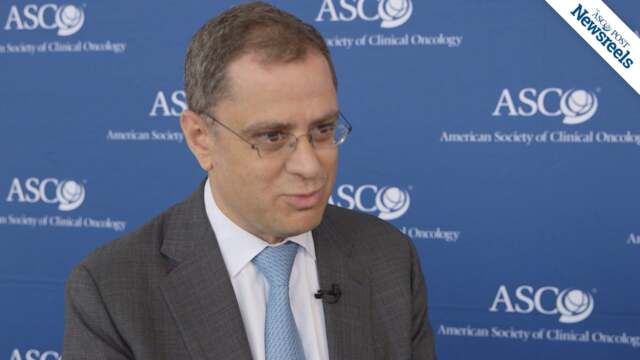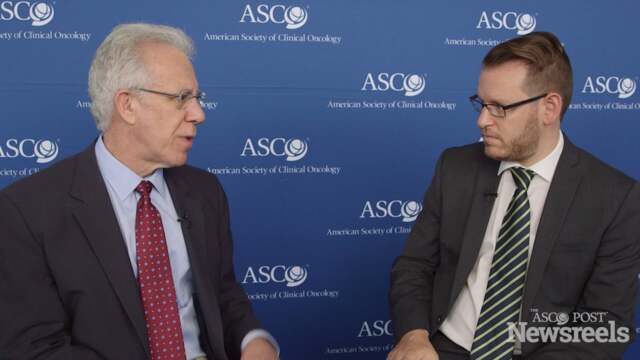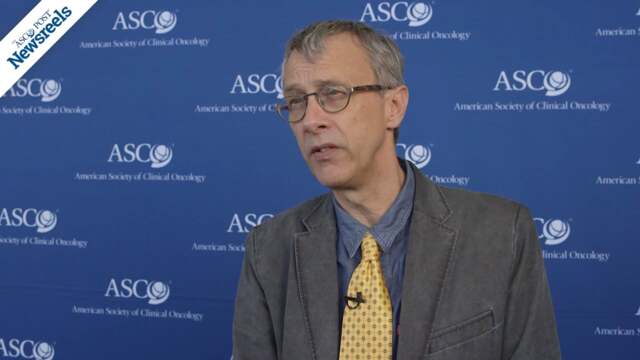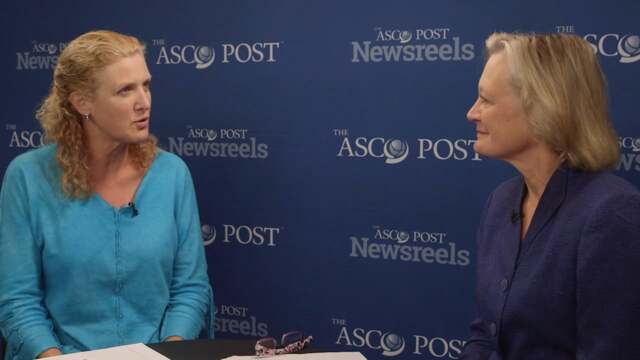Lee S. Schwartzberg, MD, on Progress of the Institute for Clinical Immuno-Oncology
2016 ASCO Annual Meeting
Lee S. Schwartzberg, MD, of The West Clinic, reports on progress of the now year-old ACCC initiative to speed adoption of immunotherapeutics in community practices.
John D. Hainsworth, MD, of the Sarah Cannon Research Institute, discusses early findings from this umbrella basket study on targeted treatment, outside of current drug indications, for different types of advanced solid tumors (Abstract LBA11511).
Ghassan K. Abou-Alfa, MD, of Memorial Sloan Kettering Cancer Center, discusses findings of this phase III study of sorafenib plus doxorubicin versus sorafenib in patients with advanced hepatocellular carcinoma (Abstract 4003).
Lawrence N. Shulman, MD, of Abramson Cancer Center at the University of Pennsylvania, and Daniel A. Goldstein, MD, of the Rabin Medical Center, discuss global challenges in cancer care, including treating patients in areas lacking resources, and cancer drug price disparities (Abstract LBA6500).
Martin J. Van Den Bent, MD, PhD, of the Daniel den Hoed Cancer Center, discusses the interim analysis of the EORTC phase III study on concurrent and adjuvant temozolomide in anaplastic glioma without 1p/19q co-deletion (Abstract LBA2000).
The
Lisa A. Carey, MD, of the University of North Carolina, and Julie Gralow, MD, of the University of Washington, discuss the most important data presented this year on treating breast malignancies (Abstracts LBA1, 500, and 507).





